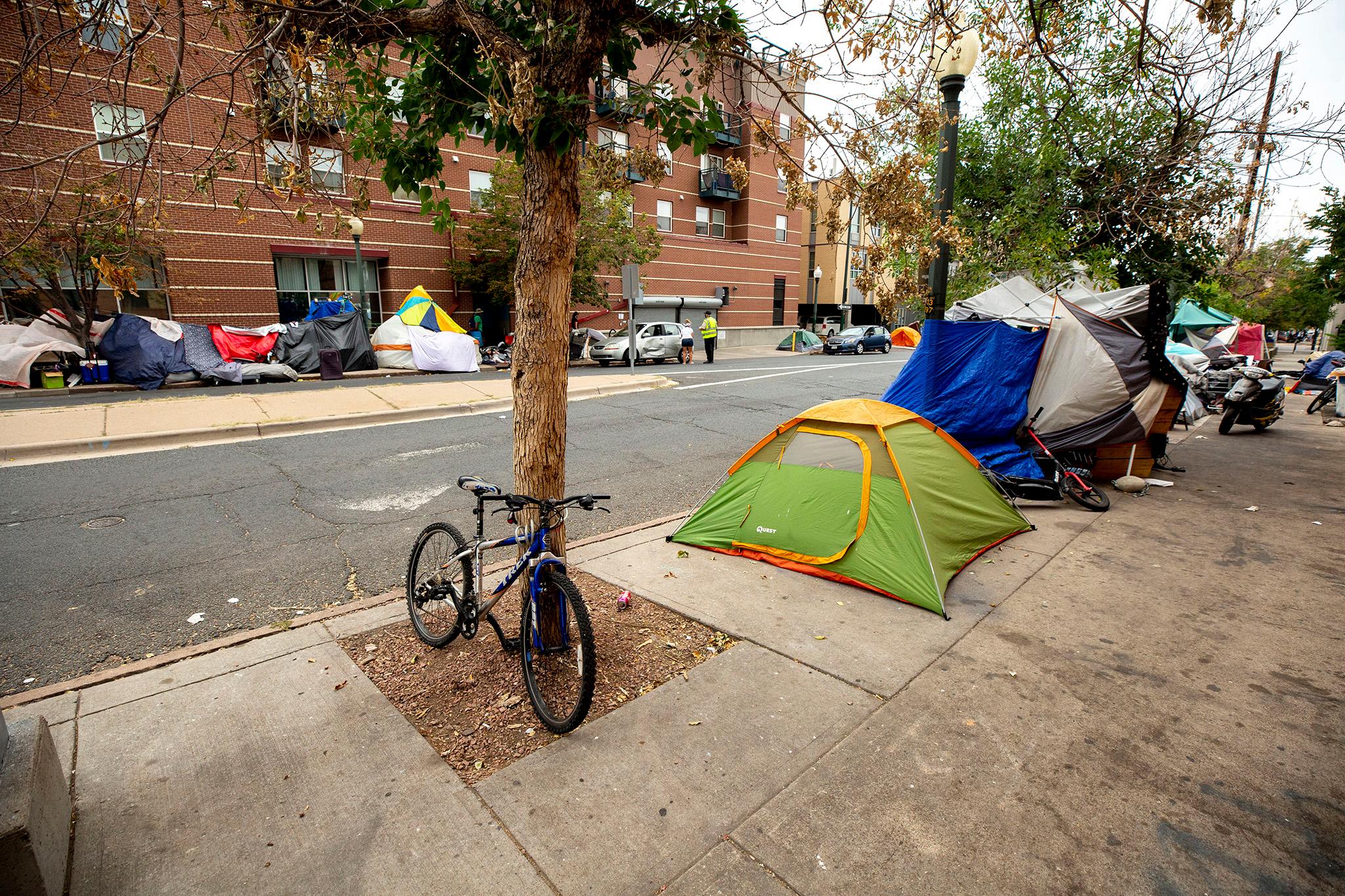Colorado business leaders say the rise of visible homelessness in the state's urban places is hurting their bottom lines.
The public perception of safety in downtown Denver is becoming increasingly problematic, regardless of whether crime is actually being committed in the area, according to Beth Moyski of the Downtown Denver Partnership, a business advocacy group.
"It's that person talking to themselves .... They might not have any contact with me whatsoever, but when you walk past them or when they walk past you, it might make you feel uncomfortable. And that's how people feel unsafe," Moyski said during a panel discussion hosted by the Colorado Chamber of Commerce.
Moyski says her group favors working on policies that focus on preventing homelessness, rather than just waiting until people are on the street to treat them. That could mean talking with high school kids and offering more opportunities for education on the issue for the community, she said.
The state is short 14,600 supportive housing units, according to the Corporation for Supportive Housing. Such units offer both rental assistance and support services. John Parvensky, CEO of Colorado Coalition for the Homeless, said it's important to invest in supporting people -- as opposed to criminalizing homelessness.
"If all we do is curse people who are homeless and have no place to be, and don't invest in the infrastructure of an adequate emergency shelter response system and ultimately with the number of affordable housing units, then we're likely to have the same result over and over again," Parvensky said.
One solution is to convert existing space, like motels, into housing. But those ideas sometimes don't work out as envisioned, and downtown neighbors have been hesitant to some housing ideas. Still, there simply isn't enough such empty space to fix the problem, said Kristin Toombs, Colorado's director of the office of homeless initiatives.
"I would say - it's a tool in the toolbox," Toombs said. "Unfortunately, there isn't one silver bullet that will work."











